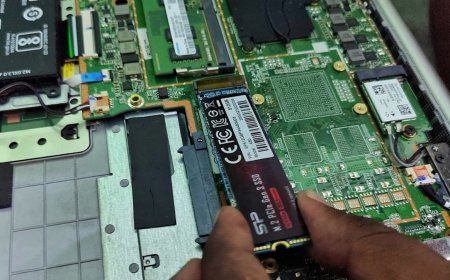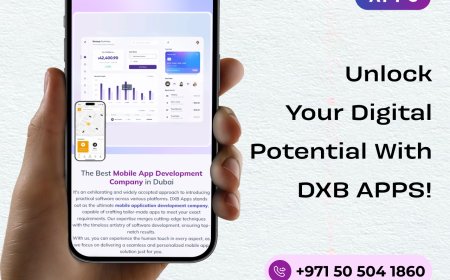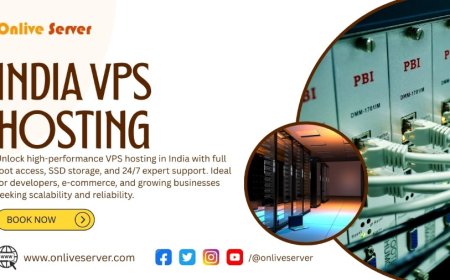A Complete Guide to Choosing the Right Campus Management Software for Your Institution
Selecting the right Campus Management System Software is a critical decision for educational institutions. With the right software, schools can streamline administrative tasks, enhance communication, and improve the overall experience for students and staff. However, with so many options available, choosing the best solution can be overwhelming. This guide will help you navigate the process of selecting the right campus management software for your institution.
Understanding Campus Management Software
Campus Management Software is designed to assist Campus Management System Softwareinstitutions in managing various administrative tasks. This software integrates multiple functions into a single platform, allowing staff to access and manage information easily. Key features often include:
- Student Information Management: Centralized storage of student records, including enrollment, grades, and attendance.
- Course Management: Tools for scheduling classes, managing course materials, and tracking student progress.
- Financial Management: Features for handling tuition payments, financial aid, and budgeting.
By understanding what campus management software offers, you can better assess your institution's needs and find the right solution.
Assessing Your Institution's Needs
Before diving into the selection process, its essential to assess your institution's specific needs. Consider the following factors:
1. Size and Type of Institution
The size and type of your institution will significantly influence your software requirements. For example:
- Small Colleges: Smaller institutions may need a simpler system that covers basic functions like enrollment and course management.
- Large Universities: Larger institutions often require more comprehensive solutions that can handle complex administrative tasks and a higher volume of data.
2. Current Challenges
Identify the current challenges your institution faces. Common issues may include:
- Inefficient Processes: Are administrative tasks taking too long? Look for software that automates routine processes.
- Data Management Issues: If managing student records is cumbersome, consider software with robust data management features.
By understanding your challenges, you can prioritize the features that will address them effectively.
Key Features to Look For
When evaluating Campus Management System Software, certain features are essential for ensuring that the software meets your institution's needs. Here are some key features to consider:
1. User-Friendly Interface
A user-friendly interface is crucial for ensuring that staff can navigate the software easily. Look for systems that offer:
- Intuitive Design: A clean and organized layout helps users find the information they need quickly.
- Customizable Dashboards: Dashboards that can be tailored to individual user preferences enhance usability.
2. Comprehensive Student Information Management
The software should provide a centralized database for managing student information. Key features include:
- Real-Time Updates: The ability to update student records in real-time ensures that information is always current.
- Data Security: Protecting sensitive student information is vital. The software should include robust security measures to safeguard data.
3. Course Management Capabilities
Effective course management is essential for any educational institution. Look for software that offers:
- Course Scheduling: The ability to create and manage course schedules easily.
- Curriculum Management: Tools for managing course descriptions, prerequisites, and learning outcomes.
4. Financial Management Tools
Managing finances is a critical aspect of running an educational institution. The software should include features for:
- Tuition and Fee Management: Simplifying the billing process for both students and administrators.
- Financial Aid Management: Supporting financial aid processes, including scholarships and loans.
5. Reporting and Analytics
Data-driven decision-making is essential for the success of any educational institution. The software should provide:
- Customizable Reports: The ability to generate reports on various aspects of the institution, such as enrollment trends and student performance.
- Dashboards: Interactive dashboards that provide a visual representation of key metrics and performance indicators.
Evaluating Software Providers
Once you have identified your needs and the key features to look for, its time to evaluate potential software providers. Here are some steps to follow:
1. Research Providers
Conduct thorough research on different software providers. Look for:
- Reputation: Check reviews and testimonials from other institutions to gauge the provider's reputation.
- Experience: Consider how long the provider has been in the industry and their experience with similar institutions.
2. Request Demos
Most software providers offer demos or free trials. Take advantage of these opportunities to:
- Explore Features: Get a hands-on feel for the software and see how it meets your needs.
- Ask Questions: Use the demo to ask specific questions about features and functionality.
3. Consider Customer Support
Reliable customer support is essential for a smooth implementation process. Look for providers that offer:
- Training Resources: Ensure that the provider offers training materials and sessions for staff.
- Ongoing Support: Check if the provider offers ongoing support for troubleshooting and assistance.
Budget Considerations
Budget is a crucial factor when selecting Campus Management System Software. Consider the following:
1. Total Cost of Ownership
Evaluate the total cost of ownership, which includes:
- Initial Costs: The upfront cost of purchasing the software.
- Ongoing Costs: Subscription fees, maintenance, and support costs.
2. Return on Investment
Consider the potential return on investment (ROI) the software can provide. Look for:
- Efficiency Gains: How much time and resources can the software save?
- Improved Student Experience: Will the software enhance the overall experience for students and staff?
Conclusion
Choosing the right Campus Management System Software is a significant decision that can impact the efficiency and effectiveness of your institution. By assessing your needs, identifying key features, evaluating software providers, and considering budget factors, you can make an informed choice. The right software will streamline administrative tasks, enhance communication, and ultimately improve the educational experience for everyone involved. Investing in the right campus management software is a step toward a more organized and productive institution, paving the way for future success.





























